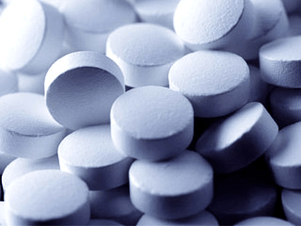
Prostatitis tablets are the main and basic tool for any form of this disease. They help the patient to recover faster, and the range of motion is focused on each element of the development of the disease.
The main thing to remember when choosing medications for prostatitis is that they are prescribed by a doctor. He is a qualified specialist who will prescribe treatment for prostatitis completely individually, taking into account the interaction of tablets with other drugs prescribed to a person and the effect of the drug on the whole body.
Not only can prostate disease cause painful feelings and psychological distress, but a wrongly chosen drug can cause harm: an allergic reaction, impaired reproductive function, or an inadequate erection, one of the signs of weakness in men.Drugs used in prostatitis are divided into the following main groups, but are taken together:
- Antibacterial drugs.The first choice of a doctor in the treatment of a disease, especially the acute form. It aims to destroy the causative agent of the disease, which is detected on the basis of laboratory tests of prostate secretion. They must penetrate freely into the tissues of the prostate and cause a high concentration of the substance in them, so the course of antibiotics is at least 4 weeks; For severe pain, antibacterial drugs are administered intravenously.
- Alpha blockers.Prostatitis pills from this group are intended for men with urinary incontinence. It relaxes the smooth muscle fibers of the prostate and bladder, relieves sphincter spasm, improves the excretion of urine and seminal fluid, reduces the number of cravings and reduces the pressure on the bladder.
- Muscle relaxants.They have a similar effect to alpha-blockers, but target the perineal region, which is constantly increasing in tone during prostatitis. Reduces pressure in the pelvic region, reduces pain.
- Painkillers.Relieve lower abdominal pain. Dosage should be checked by a physician.
- Phytotherapeutic drugs.Based on natural herbs. Reduces edema and inflammation of the prostate gland, prevents stagnation, restores the secretion of physiological fluids. Preparations based on pumpkin seeds, creeping dates and sabal fruits are popular.
- Hormonal agents.aimed at reducing testosterone levels, which help increase prostate tissue and normalize the overall hormonal background.
- Soothing.Intended for patients with depression due to impaired quality of life, including sex.
- Vitamins.It is important for the overall strengthening of the immune system, which is weakened by both disease and treatment.
Basic drugs for prostatitis and BPH
There is no best treatment for prostatitis from a medical point of view, it is obvious, because this or that drug is aimed at only one of the causes of the disease, as well as several forms of the disease:
- In the case of an acute bacterial form caused by bacteria of the Escherichia coli group, antibacterial drugs from the fluoroquinol group are required.
- Chronic bacterial formusually heals within a few weeks because antibiotic therapy is ineffective for this form.
- A non-bacterial form of prostatitis, it is still treated with antibiotics, as no infection has been detected, as experts have found a reduction in pain syndromes in patients.
The best treatment for prostatitis will be different for each patient, but there are a number of drugs known from advertisements that are absorbed in most pharmacies, improve urinary excretion, and affect prostate metabolism and microcirculation. They are often prescribed for the treatment of chronic prostatitis and benign prostatic hyperplasia.
Prostate adenoma drugs are mainly androgens that facilitate urination by increasing the functional capacity of the detrusor.
There are many medications for the treatment of prostatitis, including the treatment of prostatitis adenoma, but it is important to remember that such medications should only be taken with a doctor's prescription so that self-medication does not cause deterioration.























